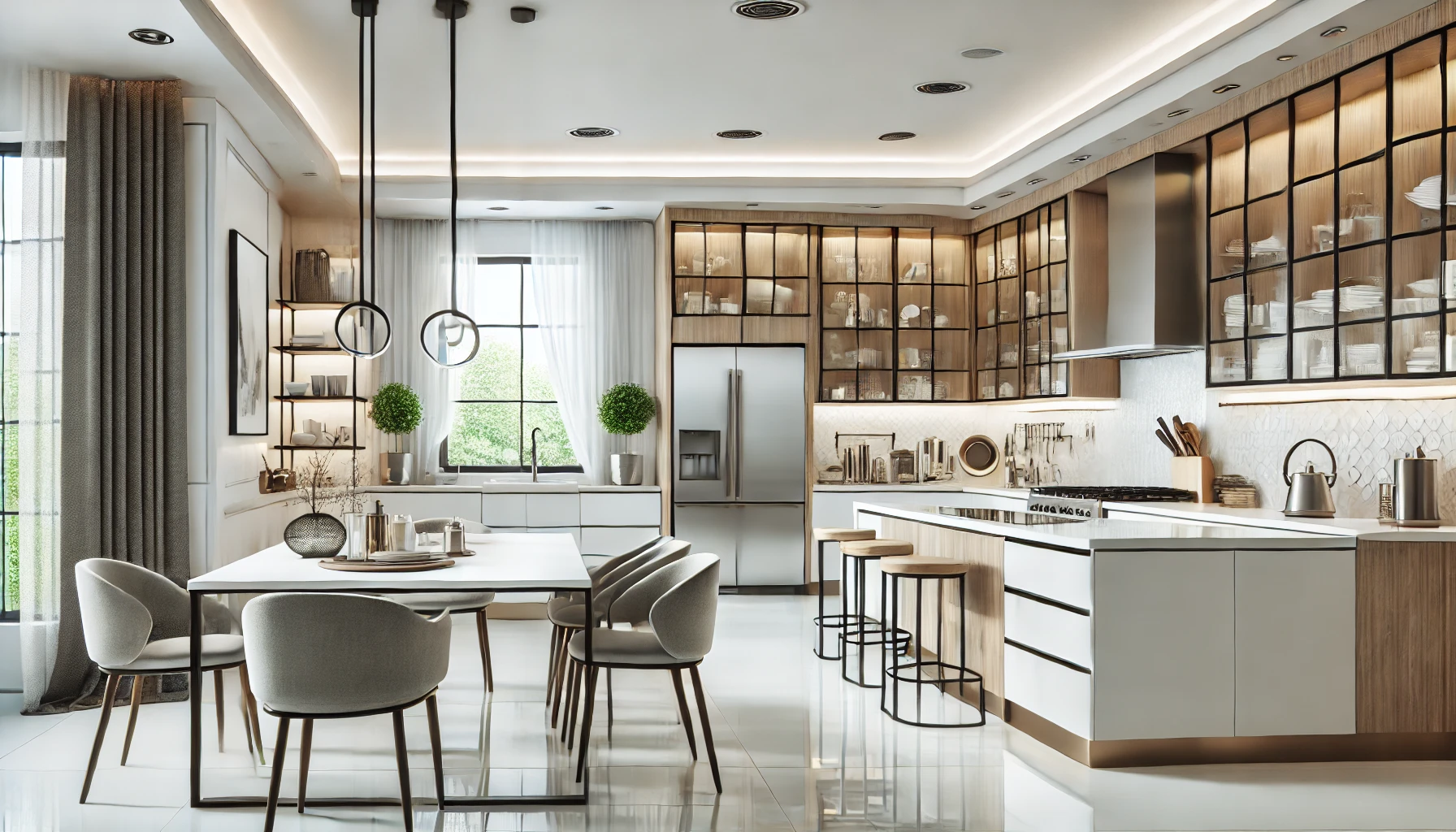A kitchen remodel is one of the most popular home improvement projects. Many homeowners invest in updating their kitchens to enhance functionality, modernize the space, and improve aesthetics. Since the kitchen is often considered the heart of a home, a well-designed and updated kitchen can significantly impact a property’s value.
Why Do Buyers Prioritize Kitchens?
When evaluating a home, potential buyers often focus on the kitchen. It is a space that serves multiple purposes, from cooking and dining to socializing with family and friends. A functional and attractive kitchen can create a welcoming atmosphere that appeals to buyers. If a kitchen appears outdated or lacks modern features, buyers may view the home as less desirable or factor in renovation costs when making an offer.
Factors That Influence the Return on Investment
The return on investment (ROI) for a kitchen remodel depends on several key factors, including the quality of materials, the scope of the renovation, local real estate trends, and the overall home value.
1. Quality of Materials and Finishes
The materials used in a kitchen remodel play a crucial role in determining its impact on home value. High-quality finishes, such as granite or quartz countertops, custom cabinetry, and energy-efficient appliances, can make a home more attractive to buyers. These elements not only enhance aesthetics but also add long-term value due to durability and functionality. On the other hand, lower-quality materials may not yield the same return and could require frequent maintenance or replacement.
2. Scope of the Remodel
The extent of the renovation also affects how much value a kitchen remodel adds to a home. A minor remodel, such as repainting cabinets, updating hardware, or replacing outdated fixtures, can offer a strong return with relatively low costs. These small changes can refresh the space without requiring major structural modifications.
A major kitchen remodel, which involves new cabinetry, flooring, high-end appliances, and layout changes, requires a higher investment but can substantially increase a home’s market appeal. The decision between a minor or major remodel should be based on the home’s current condition, budget, and expected ROI.
3. Local Real Estate Trends
The real estate market in a specific area influences how much value a kitchen remodel adds. In some markets, buyers expect modern, high-tech kitchens with smart appliances, while in others, a more traditional style may be preferred. Understanding buyer preferences in your local market can help ensure that renovations align with current trends and demand.
For example, in high-end neighborhoods, a luxury kitchen with premium materials may be expected, while in more affordable areas, a modest but well-updated kitchen may be more practical. Researching recent home sales and speaking with local real estate agents can provide insight into what features buyers prioritize.
4. Impact of Neighborhood and Home Value
The overall value of a home and its surrounding neighborhood can affect how much a kitchen remodel increases its resale value. Homes in upscale neighborhoods typically see higher returns on high-end kitchen renovations, whereas in lower-priced areas, spending excessively on luxury upgrades may not yield a proportional increase in home value.
It is essential to maintain balance within the home. A kitchen that is significantly more luxurious than the rest of the house may not appeal to buyers seeking a consistent style throughout the property. Striking the right balance ensures that the remodel enhances the home’s appeal without overpricing it for the local market.
Average ROI for a Kitchen Remodel
On average, a minor kitchen remodel can yield an ROI of around 70-80%, while a major renovation typically has an ROI of 50-60%, depending on the extent of the upgrades and the housing market. These figures vary based on location, material choices, and buyer demand.
How to Maximize the Value of a Kitchen Remodel
To get the best return on investment, homeowners should focus on updates that enhance both aesthetics and functionality. Here are some tips to maximize the value of a kitchen remodel:
-
Upgrade to Energy-Efficient Appliances— Modern appliances with energy-efficient features can attract buyers looking to save on utility costs.
-
Focus on Cabinetry and Countertops— Updated cabinets and durable countertops, such as quartz or granite, can instantly elevate a kitchen’s appearance.
-
Improve Lighting— Installing bright, modern lighting can make the kitchen look more spacious and inviting.
-
Choose a Timeless Design— A neutral, classic design appeals to a broader range of buyers and ensures longevity.
-
Enhance Storage Solutions— Additional storage, such as pull-out shelves and built-in organizers, can improve functionality.
Consulting a Real Estate Professional
Before starting a kitchen remodel, consulting a local real estate expert can provide valuable insights into which upgrades will offer the highest return. They can assess market trends, buyer preferences, and comparable home sales to help guide renovation decisions.
Final Thoughts
A kitchen remodel can significantly enhance a home’s appeal and increase its resale value when done strategically. Homeowners should carefully consider material quality, renovation scope, and local market conditions before investing in updates. By making thoughtful improvements, a remodeled kitchen can provide both immediate enjoyment and long-term financial benefits.






Sarah Mitchell
Sarah is a journalist covering real estate trends, market shifts, and housing policy. Her reporting combines data-driven analysis with human stories, appearing in top business and lifestyle outlets. With a sharp eye for industry changes, she makes complex topics accessible to buyers, investors, and policymakers.